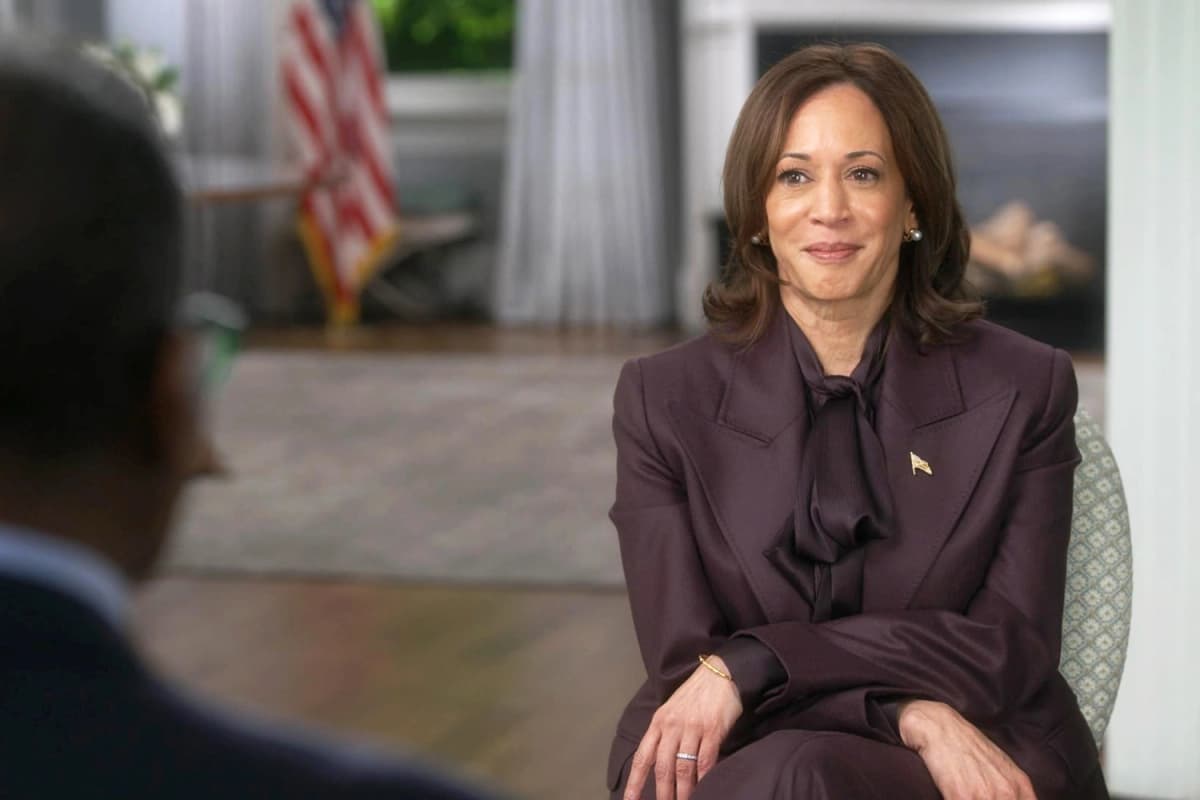Raw ‘60 Minutes’ Footage Offers Tips for a Comeback If Kamala Harris Chooses To Pursue One
‘Be yourself,’ Oscar Wilde is quoted as saying. ‘Everybody else is taken.’

The political world is atwitter over CBS releasing their entire interview with Vice President Harris on “60 Minutes.” Most focus on the answers, edits, and facts. Yet what can be gleaned from the moments in between, rather than policy and polish, will be key to electoral success in future campaigns.
“You know that mold is at an all-time high today,” Ms. Harris tells her interviewer, Bill Whitaker, at the top of the footage, “which is the one thing I am allergic to.” She blows her nose while laughing. It’s mundane — and it connected with millions of allergy-suffers who nodded in sympathy.
Many guests get irritated by makeup artists. It was another window into Ms. Harris’s personality that, when one approaches to smooth a displaced lock of hair, the vice president puts her at ease. “No problem,” she says. “Just do what you need to do.”
At another point, Mr. Whitaker points out that someone off-camera is making noise. A nonplused Ms. Harris smiles, turns, and speaks in a tone that’s not scolding or angry. “Okay,” she says, “whoever’s in the dining room…?” and waits.
A woman responds and falls silent. Ms. Harris smiles again, returning to Mr. Whitacker. Like her cooking videos and “Saturday Night Live” cold open, these were glimpses of the person behind the politician — one said to be contemplating another run for president or for California’s governorship.
“Be yourself,” Oscar Wilde is quoted as saying. “Everybody else is taken.” The undocumented remark fits with the theme of his 1890 novel, “The Picture of Dorian Gray.” Candidates feel they have to keep the real version of themselves hidden in the attic, presenting an idealized persona to the public.
For example, commentators made much of Ms. Harris’s giggling, which the unedited footage makes clear is just one of her quirks. The campaign must have thought it was unserious, even with their “joy” branding. The vice president overcompensated by going serious when cameras rolled.
This stiffness recalls a story by an anarchist, Emma Goldman, in her 1931 memoir, “Living My Life.” She wrote of a “young boy” approaching her at a party. “With a grave face” he said that “it did not behoove an agitator to dance.”
Goldman “grew furious” and said that she didn’t think “the Cause” should “demand the denial of life and joy.” She sought “freedom, the right to self-expression — everybody’s right to beautiful, radiant things.” Ms. Harris might have made the same case.
Instead, when the “60 Minutes” interview began, the candid Ms. Harris disappeared, replaced by what campaigns refer to as The Candidate. She began gesticulating in a way she didn’t before. Someone may have said, “Move your hands more,” and the vice president took it to an extreme.
Of course, unscripted moments often get candidates in trouble. President Trump, though, has shown how effective reality TV can be. Like President Biden, voters never know what he’ll say next. Even their risqué remarks and curses were welcomed. “Here,” people thought, “is someone real.”
Mr. Trump holds crowds in thrall with tangents that he calls “The Weave.” Whenever he handed local Republican candidates the mic on the hustings, they’d begin their memorized, focus-grouped remarks and the energy would plummet. The president often sensed this and gave them the hook.
Long before the TV age, President Andrew Johnson discovered how little voters care for repeats. In his 1866 “Swing Around the Circle,” he traveled nationwide delivering the same speech printed in the paper again and again. People started showing up not to listen, but to boo him for serving leftovers.
During the 1952 campaign, a photographer, William Gallagher, captured that the Democratic presidential nominee, Governor Stevenson, had a hole on the sole of his right shoe. Gallagher thought nobody would want the photograph, that it was too real.
Instead, the picture ran on the front page of almost every newspaper. It changed the perception of Stevenson as an egghead and political scion in a way no consultant’s strategy could. This is something for Ms. Harris to remember if and when she tries again.

